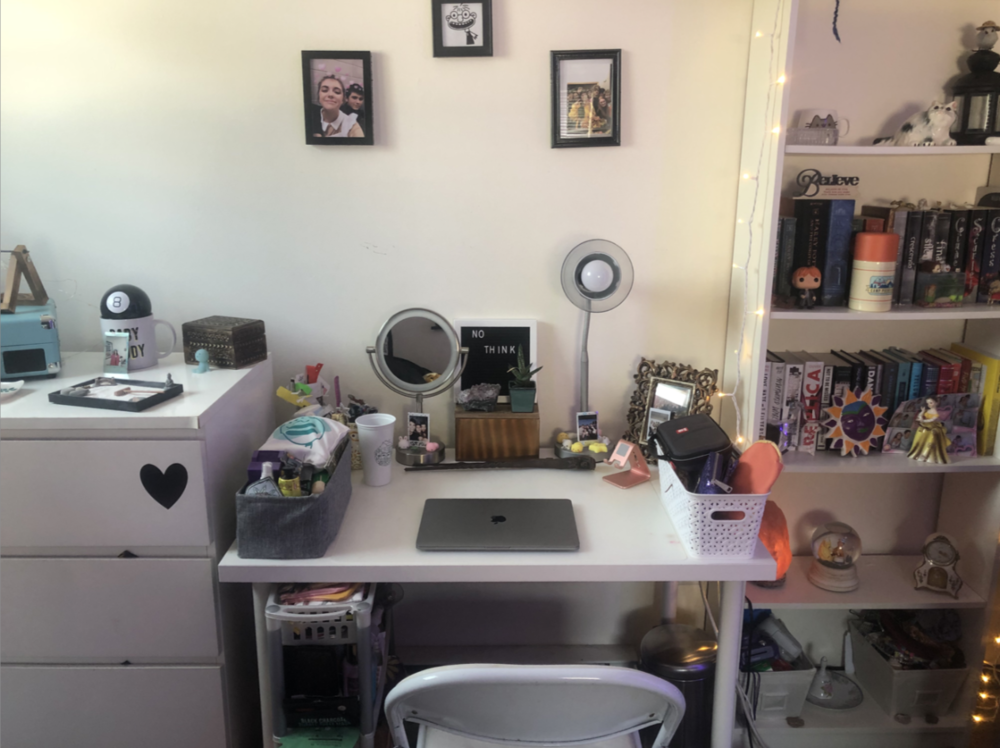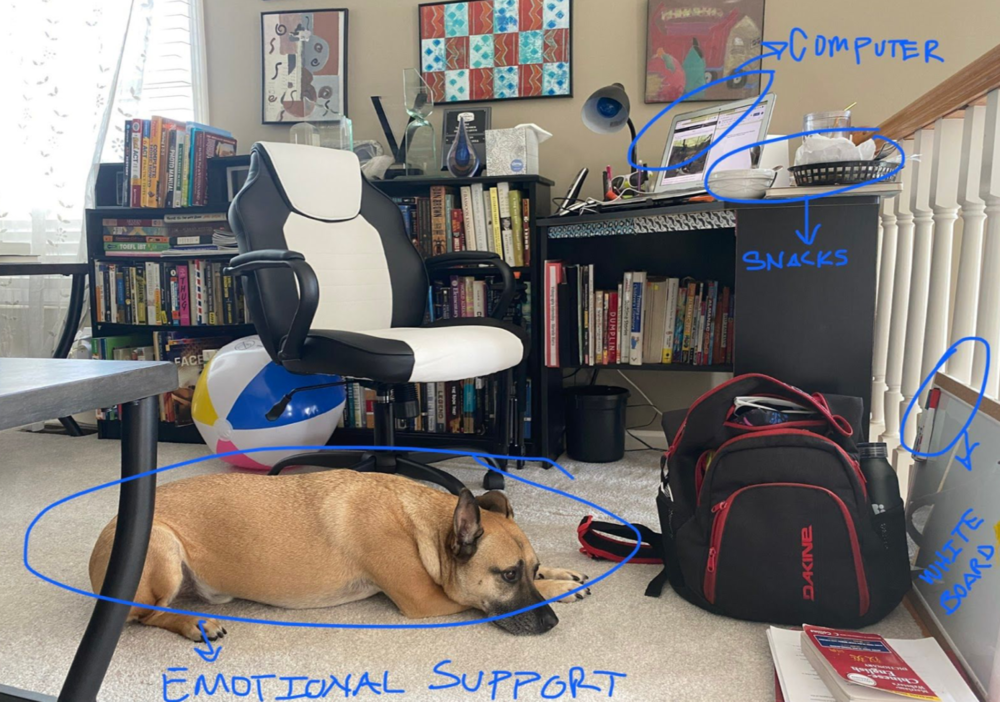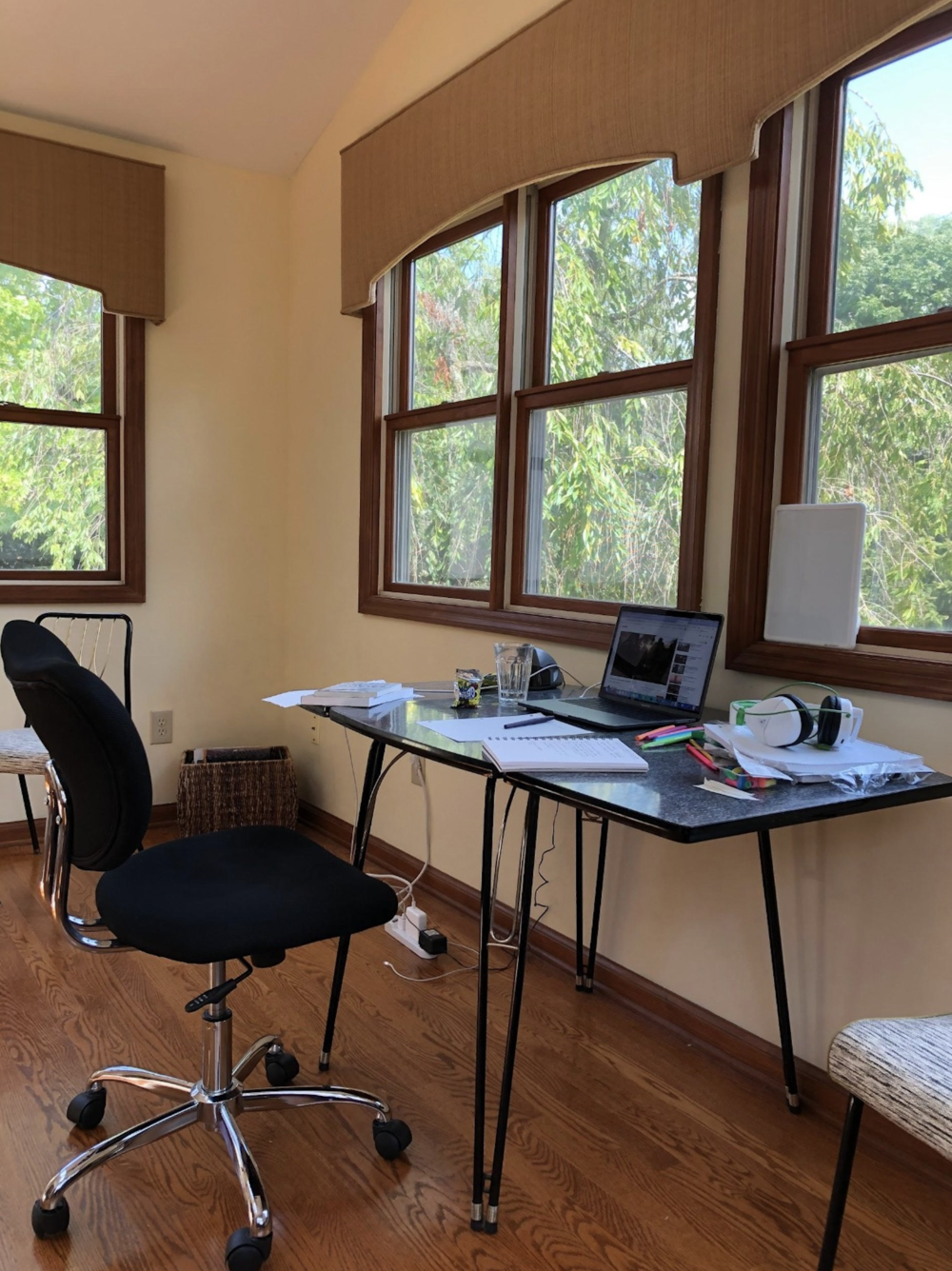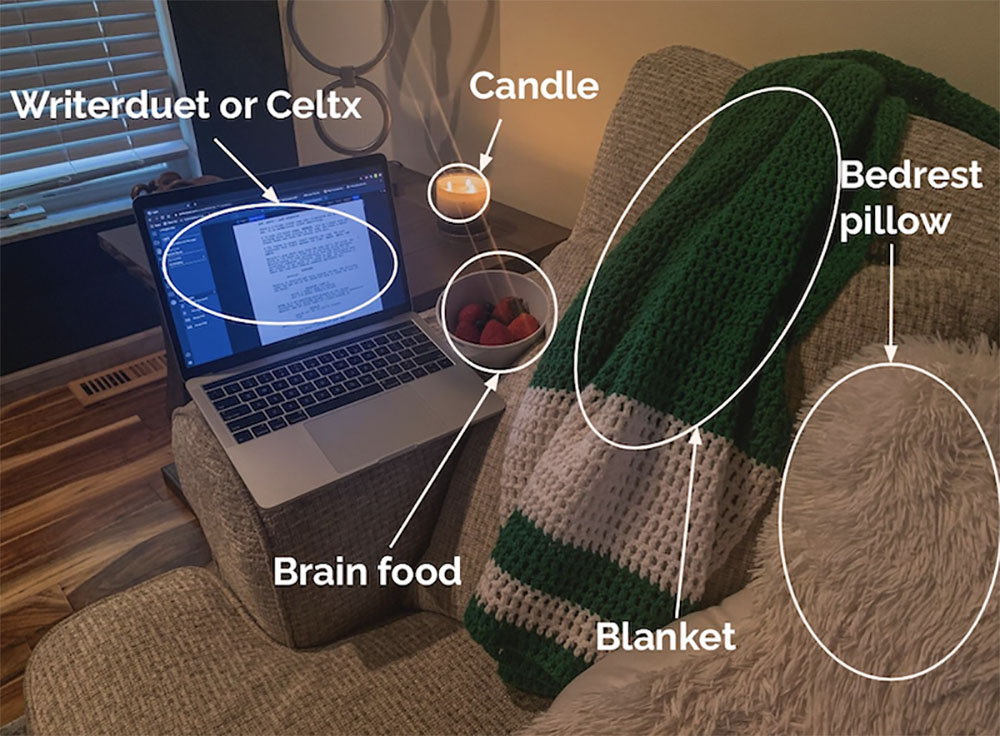Sophomore Screenwriters Pioneer New BFA Writing Course
A new screenwriting course being taught to Ohio University School of Film undergraduates is cranking out exciting new stories.
The class consists of a two-part production plan that involves screenwriting in fall semester and a production course in spring semester when students commit their ideas to a short film.
For the screenwriting course, Lindsey Martin, assistant professor of filmmaking and instructor for the course, takes the students through all aspects of the process: From generative writing, to fundamentals, to breaking down other works and thinking visually as a writer.
“[The students] are starting to see how things function within other people’s work and applying it to their own work,” Martin said. “We spend the first half of the semester talking about story structure.”
She said part of the process is getting students to disconnect their understanding of literary stories and to start thinking about story as a moving picture. The other challenge is teaching students to write stories in a shorter format.
“For the first four weeks, we really spent a lot of time working on scale. I think the reality of, ‘how long is three minutes’ starts to sink in,” Martin said. “But they are getting it and I think they’re really able to see ‘Oh yeah, that’s not going to work.’ ”
The class of 13 sophomores is fully online. It meets twice a week and students meet virtually outside of class time to workshop their pieces in smaller groups.
“They had to take photographs of their writing spaces. I wanted to see what their process is since they’re all in different spots,” she said. “They had to tell me what their process was going to be for this class to devote--what I’m calling ‘deep work’--to their writing. In order to do that, they had to send me photographs of where they would be writing and point out all of the tools they would need to write...and how much time they were going to be devoting to the scripts.”
Another way Martin engages students is to have them perform a writing assignment each week and workshop every Monday.
For the short film project assignment, students produce a script no longer than three pages that they will produce spring semester. Martin said the goal is to tell complete stories with a beginning, middle and end in three pages with no dialogue.
She added that while the topics are diverse, she has seen story ideas and themes that reflect the students' experiences in living in the age of a pandemic.
“I’m telling them to try to write a film with one person because of COVID. They are externally and internally influenced by COVID,” said Martin. “Ultimately doing a film with one character is going to bring up something, probably inherently about isolation.”
Although the students have faced limitations, both with COVID-19 concerns and with the process of planning a short film, Martin said students have done a great job overcoming the obstacles.
“The students come up with such great solutions for one another," she says. "It's a creative group where they practice communicating their own ideas and problem solve issues in one another's stories. It’s a great group and they’re doing really interesting things.”



